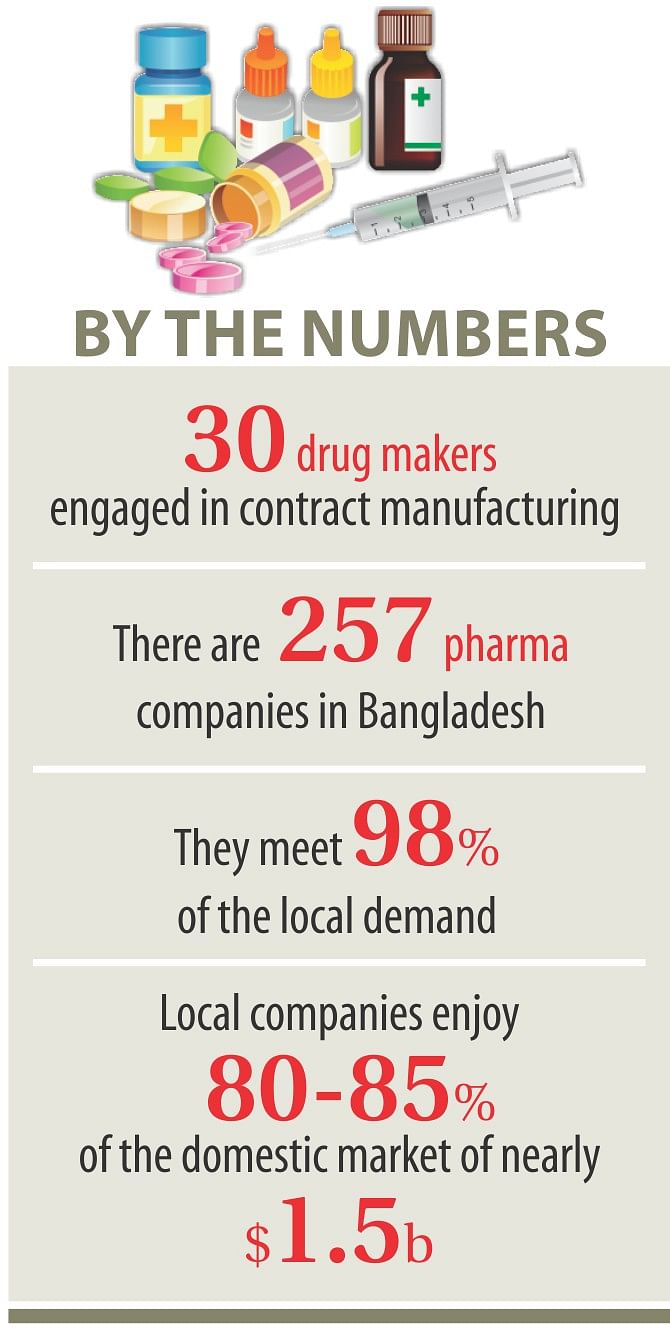Contract manufacturing brings new hope for pharma companies

Pharmaceutical companies are increasingly engaging in toll or contract manufacturing, a development that allows them to utilise unused capacities and reduce the need for fresh investment.
Toll manufacturing, ushered in by the government in the National Drug Policy 2005, is an arrangement in which a company with specialised equipment processes raw materials or semi-finished goods for another company.
Around 30 drug makers including Renata, Beximco and Popular are currently engaged in toll manufacturing for their local counterparts or even multinational companies, a sum which was less than 10 a couple of years ago.
Salim Barami, director of the Directorate General of Drug Administration, said contract manufacturing is gaining popularity as it creates a win-win situation for both parties.
Currently, some foreign companies make a certain portion of their drugs for the domestic market through contract manufacturing, which lowers their operating costs.
Contract manufacturing is mainly used for specialised or high-tech products, the facilities for which require considerable capital investment.
Shawkat Haider, Beximco Pharma's head of business development, said it is unfeasible for a firm to develop facilities to make a single product.
“It is now very popular -- it provides us the opportunity to know the technology and increase our skills and capabilities.”
Insiders said the scope for toll manufacturing has enabled firms, especially the newly-established ones, to better utilise their capacities as they are yet to create a strong presence in the market.
The system also becomes beneficial to those firms that do not have enough manufacturing capacity but register increased demand for drugs. “It is good for the overall industry,” Haider said.
To engage in contract manufacturing, pharmaceutical firms have to take approval from the Drug Administration. Its director Barami said the permission is given only when the facilities of the interested contract manufacturers are satisfactory.
“It is better for companies to engage in toll manufacturing than to become sick,” he added.
The global market for pharmaceutical toll manufacturing is worth around $50-$60 billion, with India being a prime destination for multinationals, according to Haider.
Pharmaceutical companies, now 257, meet 98 percent of the local demand for medicines. Local companies enjoy 80-85 percent of the growing domestic market of nearly $1.5 billion, according to industry estimate and data from IMS, a US-based organisation.
Bangladeshi drug makers also export, which is rising.
“Local companies are making good progress in their own humble way,” said Abdul Muktadir, general secretary of the Bangladesh Association of Pharmaceuticals Industries.
He urged the government to speed up the establishment of Active Pharmaceutical Ingredient Park and increase manpower at the Drug Administration so that the authority can supervise the sector properly.

 For all latest news, follow The Daily Star's Google News channel.
For all latest news, follow The Daily Star's Google News channel. 



Comments